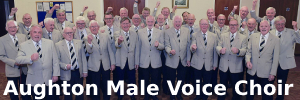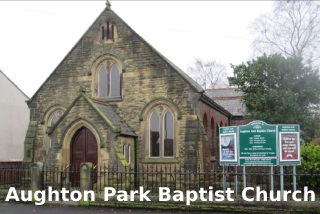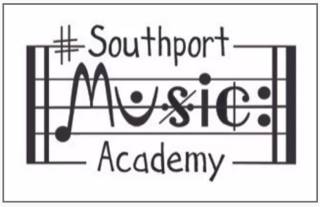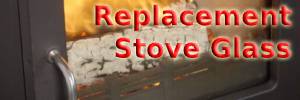The Altcar Bob train ran between Southport and Altcar from 1906 to 1938. It is remembered here with affection by the late John Ashcroft who used to live at Halsall, one of the stops on the line.
On The Track of Altcar Bob Written by John Ashcroft 1972
The Altcar Bob died in 1938 but you still meet people who rattle off the name of its drivers, firemen and guards; their voices bring it snorting back to life – though the rails it ran along are lifted; the buildings blackened by its gasping are gone; and the wind whistles unchallenged through forlorn bridges.
Villagers boggled at “this right queer-lookin’ ’osity” as one recalls, when the Altcar Bob made its debut in July, 1906, on the Downholland branch. The Bob was a steam railmotor – a tiny tank engine with single coach attached; travelling engine-first, fireman and driver shared the footplate; coming back, the fireman stayed with the engine while the driver went to a special compartment at the far end of the coach, equipped with remote-control gear. The result was a nimble, compact vehicle which never needed turning and could nip along smartly between frequent halts to pick up passengers for whom the conventional trains would have wasted time and effort, coal and money.
Certainly, villagers welcomed this frequent service with several trips extended past Barton to Altcar, giving connections with Cheshire Lines services to Liverpool. At Butts Lane in Southport, and the bridges at Heathey Lane, New Cut Lane, and Plex Moss Lane, “halts” were established, where travellers at night could lurk beneath the oil-lamps and strike matches to ensure that the railmotor would stop and extend its neat little folding steps – there were no platforms at these stops; you just stood by the track.
“That’s primitive if you like,” said Percy Lewis, who followed his family’s railway tradition. “Strike a match to stop a train! But they had to, or we’d never see them.” Another ex-driver, Ernie Wright, agreed: “Those oil-lamps were hopeless.”
So was born the Altcar Bob. Retired loco-inspector Harry Bailey said: “Old railwaymen told me the name originated from some early driver by the name of Bob.” Someone else swore that the original fare from Southport to Altcar was a shilling; another driver remarked that “Bob” was a popular tag for small engines. But, however it was christened, the Altcar Bob remains the loveliest of legends; its mere mention brings an immediate smile, a twinkle, a fond or funny anecdote.
“Behave yourself at Southport,” said one guard, “but up that branch – you’re on your own!” He did end up on his own, once. Whenever the Barton railmotor was waiting to start its return trip he would borrow a bicycle and pedal thirstily to the Blue Bell for a pint or three, and, due to some communications lapse, the railmotor once got halfway back to Southport without him. “Talk about a row,” said the driver. “Somebody higher up found out, and we very nearly all got the sack on the spot.”
My grandfather, Jack Massam, who farmed at Shirdley Hill, said: “Many a time ah’ve seen Altcar Bob gooin’ up to ‘Alsall and they’ve hit a pheasant and stopped the train and gone runnin’ back up line for it.” And the pheasants that got free trips on the Altcar Bob weren’t always accident-victims. A long-retired driver said: “They sat in rows along the track to watch us go past, and with a lump of coal – oh, it was too good to miss! But mind you,” he added darkly, “them gamekeepers watched us too, with field-glasses; and if they saw you so much as throw at a pheasant, and got your engine number . . . oh Heavens, there was trouble at the Shed!”
Game-rotas were common. The same man explained: “When I was only firing, if we hit a pheasant the driver and guard took turns keeping that; a rabbit or a hare, they gave me first choice – and they knew I didn’t like rabbit-pie anyway, so they got them too.” Other “perks” included poultry, eggs, potatoes and other produce donated by the farmers with whom the regular crews were on first-name terms.
Driver Billy Mawdsley never forgot the cabbage given to him, for his church’s Harvest Festival, by farmer Tom Sumner of Halsall – “Well you never saw such a cabbage! – the Vicar weighed it, and it was over thirty-two pounds.”
“Oh, it was a happy line,” said Ernie Wright. “Everybody knew everybody else.”
The railmotor coach, sometimes augmented by a trailer, was a one-class saloon with reversible basketwork seats, producing a boisterously friendly atmosphere; in 1968, Billy Mawdsley could still name the regular passengers before the First World War.
The guards doubled as conductors, issuing tickets to people who boarded and alighted at the halts. The last two regulars, Jimmy Drake and Harry Lindley, loved the line although their stand-ins didn’t care for the extra, unpaid responsibilities; working alternate shifts, with vastly differing temperaments but the staunchest of friends, Harry and Jimmy became a warmly remembered part of the Altcar Bob legend.
“The memory of the Altcar Bob really clings to you,” admitted the late Mrs. Alice Sumner. “It was so very homely and very friendly.”
Her father, Harry Marshall JP, drove it for over twenty years. Keen Rechabite, lay-preacher, Sunday School teacher, Co-Op board member, Infirmary director, unpaid instructor to any fireman facing a promotion exam, Union stalwart, tireless advocate for his colleagues, local magistrate for quarter of a century... Harry Marshall is another part of the legend, and so is the coffee pot which travelled with him, a squat stone bottle frequently warmed up on the Altcar Bob’s firebox flap.
And there was Tommy Shaw of Shirdley Hill, who began in West Lanky days as a porter-lad at Barton, graduated to porter-signalman, became Station-master at Shirdley Hill, and finally commanded the branch from Kew Gardens outwards.
His family were “The Railway Children” with a vengeance – one teenage daughter drove the Altcar Bob more than once, on the quiet, and railwaymen remember the family with affection.
Ernie Wright said: “Even a Station-master, Tommy Shaw thought nowt of jumping in a wagon and unloading it – he’d be the first in the wagon, Tommy Shaw. And one Christmas Eve, when we arrived at Shirdley Hill, Mrs. Shaw met us with a tray of hot mince pies and a great big jug of coffee and said ‘Come on, lads, fill your cans up.’ Oh, it really was a happy line.”
And Tommy was devoted to it, declining promotion elsewhere. George Shaw said: “Father regarded this as his private railway, almost; the closure proposal upset him dreadfully . . . he took it almost as a personal reflection”.
But passenger traffic was shrinking. Billy Mawdsley said: “The private car killed that little railmotor.” His cousin Sam, another ex-driver, said the bicycle was an earlier rival – in fine weather, Halsall folk would cycle to Southport. Then the improving roads and buses offered many Halsall and Barton residents a doorstep service, compared with the walk up dim side-lanes to the inconvenient stations, so, in 1938, the London & Scottish Railway announced the termination of passenger workings along its Downholland Branch.
Saturday, 24th September 1938, was a sad day; but it wasn’t the railmotor that made the final journey. A more conventional train, still known as the Altcar Bob, ran on Saturday nights. Officially after depositing its last passengers at the country stations, the final train of the evening ran back empty, non-stop to Southport.
But this was a special occasion; 30 years later, Driver Gordon Binks smiled warmly at the memory. “All Tommy Shaw’s family and some others stopped on with us to Barton, and came back and we stopped at Shirdley Hill and had a bit of a do...”
A bit of a do indeed.
The engine was festooned with flowers and streamers; my mother said the usual railmotor would have been too small for all the messages which she and others chalked all over the engine 'Goodbye Old Friend, Farewell Old Faithful'.
“Oh, it was full of chalkmarks, and the driver was blowing the whistle as hard as ever he could, and we had a sing-song of Auld Land Syne...”
People were buying “last tickets” from the guard, snatching pieces of coal from the bunker as keepsakes; a heartful chorus of “Should Auld Acquaintance be Forgot” swelled raggedly into the Shirdley Hill night; amid shouts and cheers and singing, a shattering fusillade of fog-signals clamped along the track by Tommy Shaw, and not a few tears, the last passenger train hissed and coughed over the level crossing and dwindled up the line, the crowd watching until the firebox glare became a dull spark that vanished abruptly under Heathey Lane Bridge, before they dispersed sadly - it was goodbye to a legend.
Freight trains still ran, but, again, road traffic was too competitive; gone were the SOS calls for spare engines to help drag endless truckloads of cabbages up Kew Embankment; by the late forties there remained one train a day. I spent golden hours illicitly stoking on it between Shirdley Hill and Barton; history lessons at Southport’s King George V School were less interesting than the sight of the ever-shorter “Downholland goods” clanking along the bank from Blowick, still hauled by a cheerful tender-engine with “Lancashire & Yorkshire Railway” on its maker’s plate, and a building date in the early 1890’s.
Finally, the seven miles of optimism born as “The Liverpool, Southport and Preston Junction Railway” in 1887 had become seven miles of rust and paintless gloom, the unwanted Downholland branch of the nationalised British Railways. On Saturday, January 19th, 1952, the last goods train ran.
Jim Rimmer, born the year before the line opened, and staying on as last full-time employee at Shirdley Hill to see it die, began a well-earned and slightly overdue retirement. After some years as storage sidings, the tracks were lifted, the cast iron LYR notices were salvaged for scrap, the very stations were demolished.
Halsall Station House, extensively renovated, stands in a garden suggesting nothing of railways; at Shirdley Hill, the House looms gaunt and derelict, and newer residents in the village might dispute that a railway ever ran through the village – but for those bridges on either side, at New Cut Lane and Heathey Lane. And, on a winter night, if you care to stand below those bridges, where the travellers once huddled and struck matches beneath the feebly glimmering oil-lamps, awaiting their beloved Altcar Bob, you can close your eyes and hear a rumble and a rushing and a hollow, mournful whistle... but it’s only the wind isn't it?
|
|
||
|
Results 1 to 2 of 2
Thread: The Altcar Bob

Custom Search

|
You are in:
UK /
Ormskirk / North West
Find any Town in the UK, or Use UK map Local Google MAP for Ormskirk Check Todays Deals On Amazon.co.uk Check Todays Deals on Ebay.co.uk 



Qlocal Supports Woodlands Animal Sanctuary 

 Be Seen - Advertise on Qlocal Corporate Sponsors
Southport Piano and Music Academy Washroom Services Maximum Grounds Maintenance Southport Garden Services Ormskirk Garden Services Sanitary Bins Nappy Bins & Waste Disposal Confidential Shredding Services Legionella Risk Testing London Washroom Services Croydon Washroom Services Hounslow Washroom Services Wandsworth Washroom Services Havering Washroom Services Sanitary Bins London Clinical Waste London General Waste London Legionella Testing London Shredding London Tatoo Waste London Preston Bird Control Blackpool Bird Control
UK, Local Online News Community, Forums, Chats, For Sale, Classified, Offers, Vouchers, Events, Motors Sale, Property For Sale Rent, Jobs, Hotels, Taxi, Restaurants, Pubs, Clubs, Pictures, Sports, Charities, Lost Found
ormskirk,
ormskirk News,
|
|
|
|
|
|









 Reply With Quote
Reply With Quote



